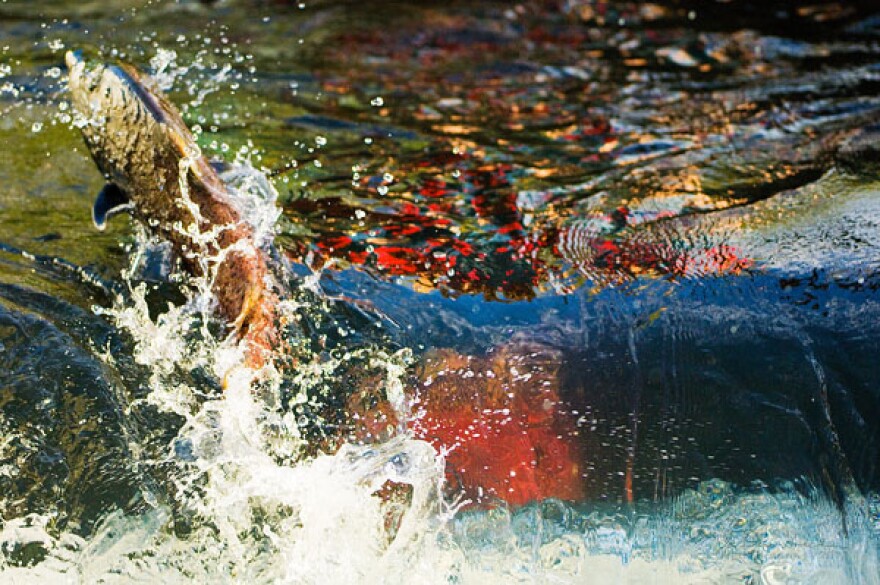California’s worsening drought prompted federal and state water managers to unveil emergency steps to protect winter salmon runs on the Sacramento River.
In a teleconference Tuesday afternoon, officials said they are extensively revising management plans, fearing that without drastic steps, winter run salmon face extinction on the river.
To give spawning wild salmon and the next generation a chance, water managers try to prevent the river’s water from rising above 56 degrees. This year, there’s simply no way. With less water and warm temperatures, officials said they’ll use whatever tricks they can to keep water temperatures from exceeding 58 degrees, a level beyond which salmon mortality surges.
With air temperatures regularly in the triple digits through Northern California’s long summers, that’s easier said than done. Typically, officials control water temperatures by mixing in colder water from deep below the surface of Shasta Lake.
Officials said they have resorted to taking cold water from Trinity and Whiskeytown Lakes via the Kesiwick dam in an attempt to control the temperatures. Scientists are very concerned that if they keep water temperatures low enough now, they’ll simply run out of cold water by September, when winter run smolts are returning to the ocean.
Drought and poor management techniques last year caused a major die off of winter run fish. Losing fish from the same run two years in a row, could put the winter run on course for extinction.






